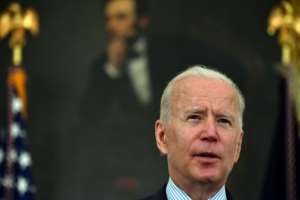
The United States has wielded its influence to block UN Security Council resolutions aimed at securing a ceasefire in the Israel-Hamas conflict on three occasions. However, in March, the Biden administration opted not to veto the latest ceasefire resolution, allowing it to pass through abstention. This decision was partly motivated by Israel Prime Minister Netanyahu’s persistent refusal to heed the White House’s calls to minimize civilian casualties and facilitate aid delivery to Gaza amidst a looming famine.
Relations between the Biden administration and Israel faced strain when the Israel Defense Forces (IDF) inadvertently struck and killed seven workers from the World Central Kitchen (WCK). While Netanyahu admitted fault and the IDF’s chief of apologized for the grave mistake, some Western voices are urging the US, UK and other allies to cease arms sales to Israel. However, these calls often overlook criticism of Hamas, the instigator of the conflict, and neglect efforts to pressure them into accepting a ceasefire.
While figures like Nancy Pelosi advocate for halting arms sales to Israel, former UK Prime Minister Boris Johnson cautions against such measures. Nonetheless, the Biden administration’s stance towards its staunch ally, Israel, could prove perilous. By refraining from vetoing resolutions and taking a more critical stance, the US risks emboldening Hamas and potentially allowing Israel’s enemies, like Hezbollah, to escalate attacks.
Israel heavily relies on the US for support across historical, political, economic and strategic domains. Withdrawal of US support would have far-reaching consequences, including military assistance and security implications. The US provides crucial aid, including advanced weaponry and intelligence sharing, enhancing Israel’s defense capabilities against regional threats such as Hezbollah and Hamas. Furthermore, US political cover in international forums shields Israel from diplomatic isolation and scrutiny.
Economically, Israel benefits from substantial US aid, investment and trade advantages. Withdrawal of economic support could disrupt Israel’s economy, impacting employment, investment and technological innovation. Moreover, US-Israel relations play a stabilizing role in the volatile Middle East, countering common adversaries like Iran and fostering regional stability.
Internally, US support for Israel enjoys bipartisan backing but could fuel domestic political divisions and debates over foreign policy priorities. In Israel, perceived weakening of US support may embolden hardline factions, hindering peace efforts and exacerbating social tensions.
Richmond Acheampong is a communication expert, consultant, independent journalist and columnist. He holds a PhD in Journalism. He can be contacted through [email protected]




 Ensure private schools employ professional teachers, not SHS graduates — Xandy K...
Ensure private schools employ professional teachers, not SHS graduates — Xandy K...
 Alan Kyeremanten was the brain behind Ghana Card not Bawumia — Hopeson Adorye
Alan Kyeremanten was the brain behind Ghana Card not Bawumia — Hopeson Adorye
 I'm not running for office for power prestige, I just want to solve Ghana’s prob...
I'm not running for office for power prestige, I just want to solve Ghana’s prob...
 Provide immediate assistance to our displaced residents — Oda Nkwanta residents ...
Provide immediate assistance to our displaced residents — Oda Nkwanta residents ...
 Send nurses abroad; it’s a better option than being unemployed in Ghana — NDC Pa...
Send nurses abroad; it’s a better option than being unemployed in Ghana — NDC Pa...
 Bawumia stole free tertiary education for Persons with Disabilities from NDC’s 2...
Bawumia stole free tertiary education for Persons with Disabilities from NDC’s 2...
 Ejisu by-election: Anger is bound to occur but return to your 'sweet home' — Nan...
Ejisu by-election: Anger is bound to occur but return to your 'sweet home' — Nan...
 Limited voters registration: Don't allow politicians to engage your minors for p...
Limited voters registration: Don't allow politicians to engage your minors for p...
 Ferry on Oti River breaks down; drivers and passengers stranded
Ferry on Oti River breaks down; drivers and passengers stranded
